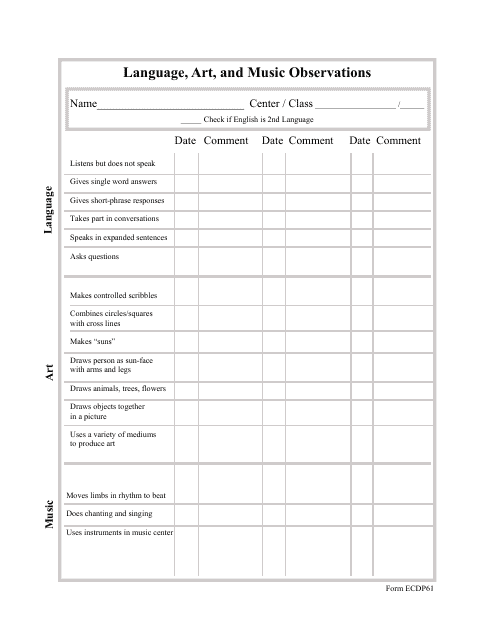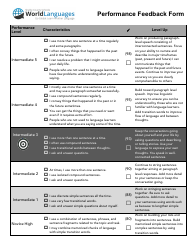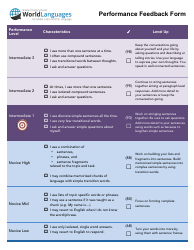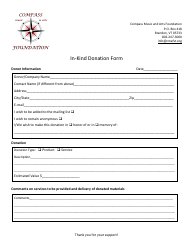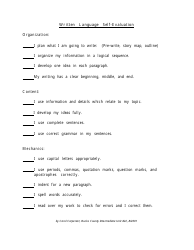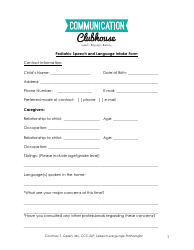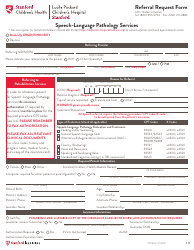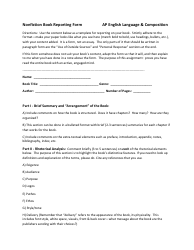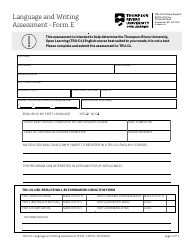Language, Art, and Music Observation Template
The Language, Art, and Music Observation Template is used to record observations and evaluations of language skills, artistic abilities, and musical talents in individuals. It is often utilized in educational settings to assess and track progress in these areas.
FAQ
Q: What is the purpose of a language, art, and music observation template?
A: The purpose of a language, art, and music observation template is to provide a structured way to document observations in these areas.
Q: What does a language, art, and music observation template typically include?
A: A language, art, and music observation template typically includes sections for recording observations, such as oral language skills, artistic expression, and musical abilities.
Q: How can a language, art, and music observation template be used?
A: A language, art, and music observation template can be used by educators, parents, or researchers to assess and track a person's language, art, and music development.
Q: Why is it important to observe and document language, art, and music skills?
A: Observing and documenting language, art, and music skills is important for tracking progress, identifying areas of strength and weakness, and informing instructional strategies.
Q: Who can benefit from using a language, art, and music observation template?
A: Educators, parents, and researchers can all benefit from using a language, art, and music observation template to gain insights into a person's language, art, and music abilities.
Q: Are there different types of language, art, and music observation templates?
A: Yes, there are different types of language, art, and music observation templates available, including ones designed for specific age groups or educational settings.
Q: Can a language, art, and music observation template be customized?
A: Some language, art, and music observation templates can be customized to meet specific needs or requirements.
Q: How often should language, art, and music observations be conducted?
A: The frequency of language, art, and music observations can vary depending on the purpose and context, but regular observations are recommended to track progress and identify areas for improvement.
Q: What are some examples of language, art, and music observation prompts?
A: Examples of language, art, and music observation prompts may include assessing vocabulary usage, evaluating artistic techniques, or analyzing musical performance.
